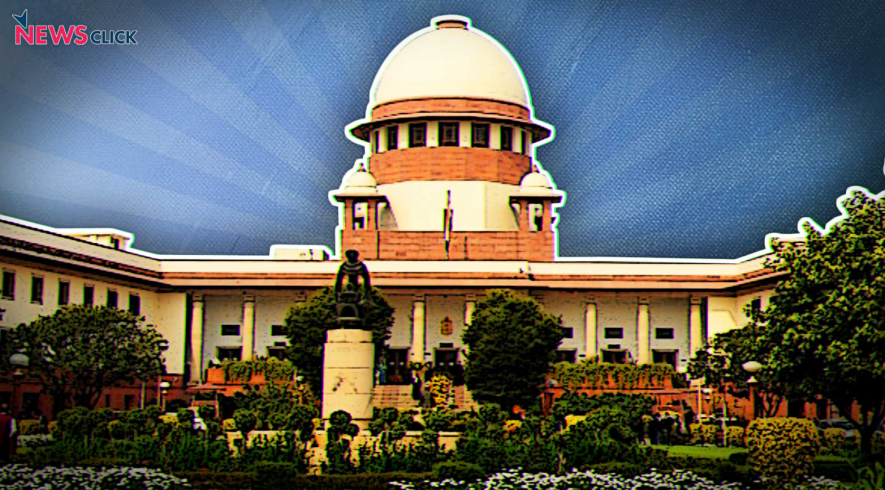Confiscation of Property of Person Acquitted in Criminal Case is an Arbitrary Deprivation: SC

THE Supreme Court earlier today held that the confiscation of the property of an accused, even though he is acquitted in a criminal case, amounts to arbitrary deprivation of his property and violates the right guaranteed to each person under Article 300A of the Constitution.
A bench of Justices K.M. Joseph and Hrishikesh Roy made these observations while quashing an order of confiscation passed by the District Magistrate, Agar-Malwa, Madhya Pradesh [MP], confiscating the truck of the accused who stood acquitted of the charges under the Madhya Pradesh Cow Slaughter (Prohibition) Act, 2004.
“In a case where the offender/accused are acquitted in the Criminal Prosecution, the judgment given in the Criminal Trial should be factored in by the District Magistrate while deciding the confiscation proceeding. In the present case, the order of acquittal was passed as evidence was missing to connect the accused with the charges”, the bench ruled.
It opined that by reason of an order of confiscation, a person is deprived of the enjoyment of his property.
“Article 300A of the Constitution provides that no person shall be deprived of his property save by authority of law. Therefore, to deprive any person of their property, it is necessary for the State, inter-alia, to establish that the property was illegally obtained or is part of the proceeds of crime or the deprivation is warranted for public purpose or public interest”, the bench added.
The petitioner’s truck, loaded with 17 cow progeny, was intercepted and the driver of the vehicle, Surendra and one other person, Nazir, sitting in the truck were arrested. The vehicle was seized and the accused persons, including the truck owner, were charge-sheeted under the 2004 Act. All the four accused stood acquitted in 2016 as the prosecution had failed to establish the primary ingredient of the charge, that the cow progeny was being transported “for the purpose of … slaughter”.
However, the District Magistrate on August 9, 2017, ordered the confiscation of the appellant’s truck, for violation of Section 6 of the 2004 Act despite being apprised of the acquittal of the accused persons by the Trial Court. The confiscation order was affirmed on September 22, 2018, by the Court of Additional Commissioner, Ujjain. The Revision Petition challenging the confiscation order was dismissed by the Third Additional Sessions Judge, Ujjain. The Truck owner’s petition in the High Court under Section 482 of the Criminal Procedure Code [CrPC] was also dismissed.
The High Court relied on a line of cases under the Indian Forest Act, 1927, particularly, State of MP vs. Smt. Kallo Bai (2017) wherein the Supreme Court had clarified that confiscatory proceedings are independent of main criminal proceedings, and its main purpose is to provide a deterrent mechanism and to stop further misuse of the subject vehicle.
Disapproving the High Court’s judgment, the Supreme Court held that the decisions relied upon by the High Court to conclude that its jurisdiction was barred under Section 482 CrPC was wrong because those decisions are not pari materia to the provisions of the 2004 Act. It highlighted that the 2004 Act does not have any non-obstante clause as in Section 52C(1) of the Forest Act or Section 15C of the Madhya Pradesh Van Upaj (Vyaapar Viniyam) Adhiniyam, 1969 which create a bar on the jurisdiction of the criminal courts.
The Court also observed that Section 11(4) of the 2004 Act specifically applies the provisions of CrPC, in relation to search and seizure, and Section 11A(4) of the 2004 Act empowers the Appellate Authority to release the vehicle at the interim stage itself. Rules 5 and 6 of the MP Govansh Vadh Pratishedh Rules, 2012 empower the police to seize the vehicle, the cow progeny and beef in case of violation of Sections 4, 5, 6,6A and 6B of the 2004 Act, as per Section 100 of the CrPC. It thus held that it is discernible that the provisions of CrPC are specifically made applicable in the 2004 Act and the 2012 Rules.
The High Court thus was wrong to say it had no jurisdiction to entertain the petition of the vehicle owner, the Supreme Court said.
The Court also rejected the argument of the Madhya Pradesh Government that the burden of proof is on the truck owner in the process of confiscation. It said Section 13A of the 2004 Act, which shifts the burden of proof, is not applicable for the confiscation proceedings but for the process of prosecution.
The Supreme Court observed that the confiscation proceeding, before the District Magistrate [DM], is different from criminal prosecution. The DM has power to independently adjudicate cases of violations under sections 4, 5, 6, 6A and 6B of the 2004 Act, and pass order of confiscation in case of violation. but in a case where the offender/accused are acquitted in the criminal prosecution, the judgment given in the criminal trial should be factored in by the DM while deciding the confiscation proceeding.
Click here to read the Supreme Court’s full judgment.
Get the latest reports & analysis with people's perspective on Protests, movements & deep analytical videos, discussions of the current affairs in your Telegram app. Subscribe to NewsClick's Telegram channel & get Real-Time updates on stories, as they get published on our website.
























